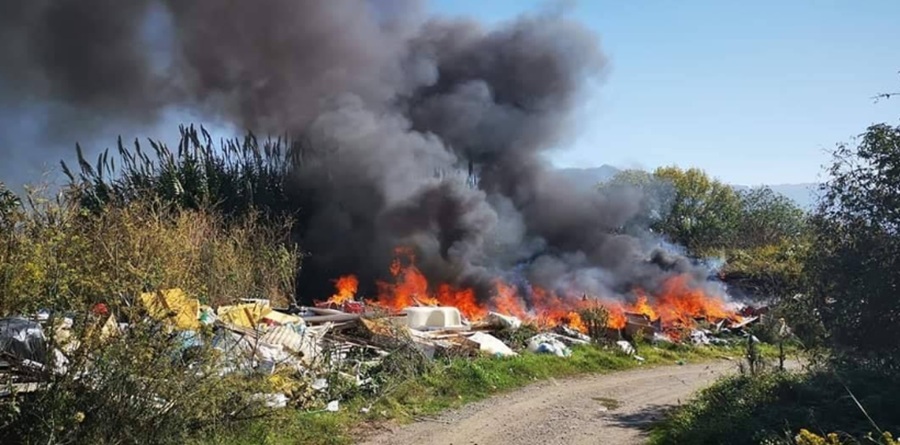Italy has failed to protect residents in Campania’s ‘Land of Fires’ (Terra dei Fuochi), the European Court of Human Rights ruled Thursday.
The court said Italy had been aware of the problem for years but failed to act with urgency or effectiveness. It criticised authorities for not properly assessing risks, preventing further harm, or keeping the public informed.
Terra dei Fuochi is a highly polluted area covering parts of Naples and Caserta provinces. It has been a dumping ground for toxic waste since the 1980s. Criminal organisations, mainly the Camorra, have illegally disposed of industrial and hazardous waste there. Fires set to destroy this waste have released dangerous toxins into the air, soil, and water.
The region has seen rising cancer rates and respiratory diseases linked to environmental contamination. Studies have shown high levels of dioxins, heavy metals, and other pollutants in the area. Many residents have reported serious health conditions, including rare tumours and birth defects.
The ECHR ruled that Italy violated Article 2 of the European Convention on Human Rights, which guarantees the right to life. The ruling said the government must take immediate action to prevent further harm to public health.
Italy has two years to create a comprehensive plan to tackle the crisis. This must include waste removal, environmental restoration, and health monitoring for affected communities. The government must also establish an independent body to oversee progress and ensure transparency.
A public platform must be created to keep residents informed about health risks and cleanup efforts. The court also adjourned 35 pending cases from 4,700 applicants while Italy works on a solution.
Local activists and environmental groups welcomed the ruling but warned that action must follow. Many have criticised previous government efforts as slow and ineffective. Last year, Carabinieri issued 12 arrest warrants over illegal dumping in the ‘Land of Fires’. Residents continue to demand justice and urgent intervention to stop further environmental damage.





